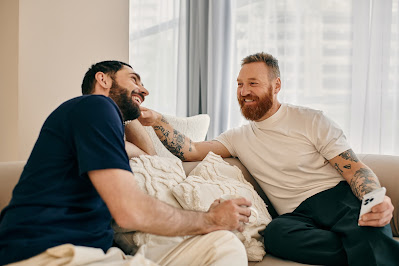What is Sociosexuality?
Sociosexuality is the willingness to engage in sexual activity outside a committed relationship. Sociosexuality is also known as sociosexual orientation.
Sociosexuality involves behaviors and attitudes related to:
- Actual and preferred frequency of sex
- Number of desired partners
- Whether or not there are extramarital affairs
- Engaging in sex outside a committed relationship
- How likely a person is to engage in sexual fantasies about people outside their current relationship
What is the Difference Between Restricted vs Unrestricted Sociosexuality?
Although sociosexuality is usually presented as being either restricted or unrestricted, in actuality, sociosexuality is probably on a continuum just like sexual orientation, gender and relationship styles are on a continuum.
Here are the definitions of restricted and unrestricted sociosexuality:
Restricted Sociosexuality
- Usually unwilling to engage in casual sex outside a committed relationship
- Prefer to engage in sex where there is love, emotional connection and commitment
- Usually not interested in a diversity of partners because they prefer to focus on one person
- Prefer less sexual variety
- Tend to seek relationship stability
- Tend to get involved in long term relationships
- Tend to be less comfortable picking up strangers or being picked up by strangers
- Generally, less likely to cheat
- Lesbians and heterosexual women tend to be more restrictive than bisexual women (based on research)
Unrestricted Sociosexuality
- Usually more willing to engage in casual sex outside a committed relationship
- Able to engage in sex where there is no love, emotional connection or commitment
- Desire a diversity of sexual partners as opposed to focusing on one partner
- Desire more sexual variety
- Tend not to be as concerned, in general, about being in a stable relationship
- Tend to get involved in shorter term relationships with less commitment and emotional connection
- Tend to feel comfortable picking up strangers and being picked up by strangers
- Generally, more likely to cheat
- Bisexual women tend to be less restrictive as compared to heterosexual and lesbian women (based on sex research)
Why Is It Important to Understand Your Sociosexuality?
Understanding your own sociosexuality helps you to understand yourself in terms of what you want from dating, relationships and sex. It helps to put your preferences in context of what is known about sociosexuality.
Understanding other people's sociosexuality helps you to determine whether or not you and they are compatible.
What Are the Implications of Sociosexuality with Regard to Dating and Relationships?
Sex researchers have determined that people who tend to use picture based dating apps tend to have unrestricted or less restrictive sociosexuality.
People with restricted sociosexuality tend to express less satisfaction with picture based dating apps because these people are focused on more than just looks.
Knowing whether you and a prospective partner are compatible with regard to sociosexuality is more likely to contribute to relationship and sexual satisfaction for both of you.
More sex research is needed to explore sociosexuality on a spectrum rather than categorizing it as either restricted or unrestricted.
About Me
I am a licensed New York psychotherapist, hypnotherapist, EMDR, AEDP, Somatic Experiencing and Sex Therapist.
I work with individual adults and couples.
To find out more about me, visit my website: Josephine Ferraro, LCSW - NYC Psychotherapist.
To set up a consultation, call me at (917) 742-2624 during business hours or email me.














.jpg)




.jpg)


.jpg)



.jpg)



.jpg)

.jpg)



.jpg)












